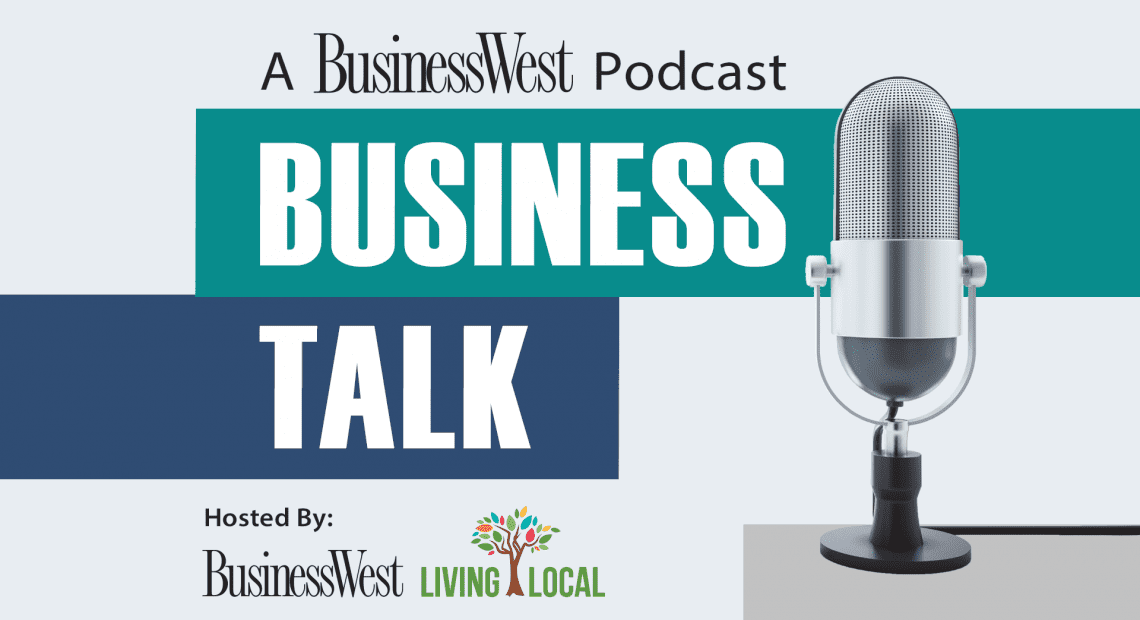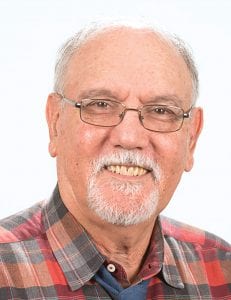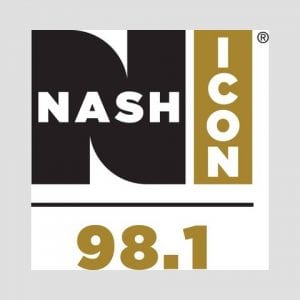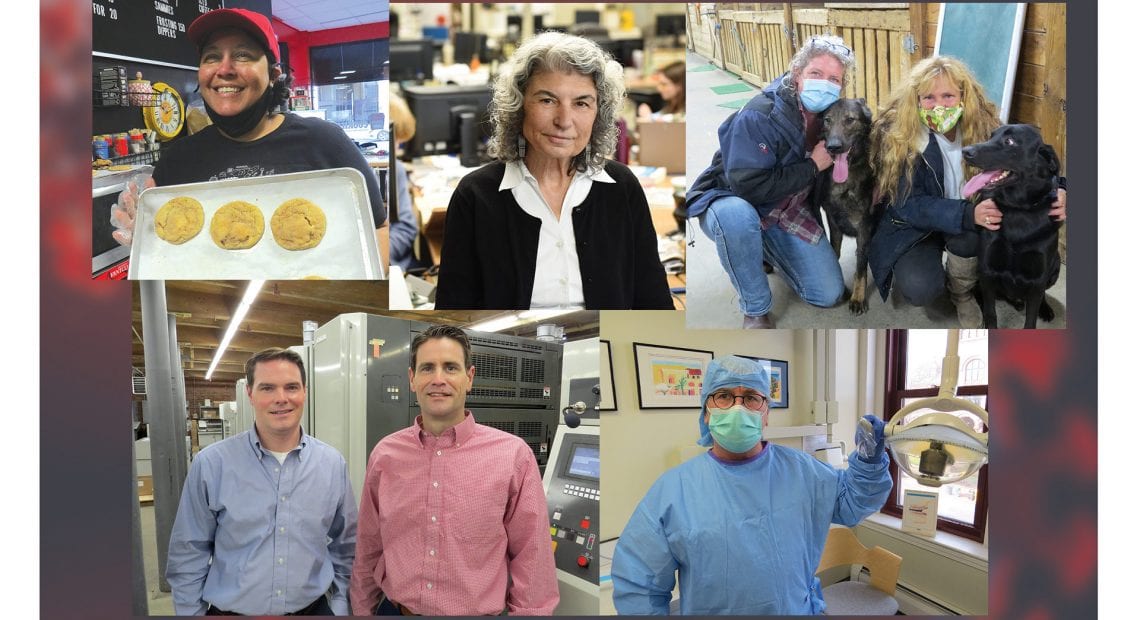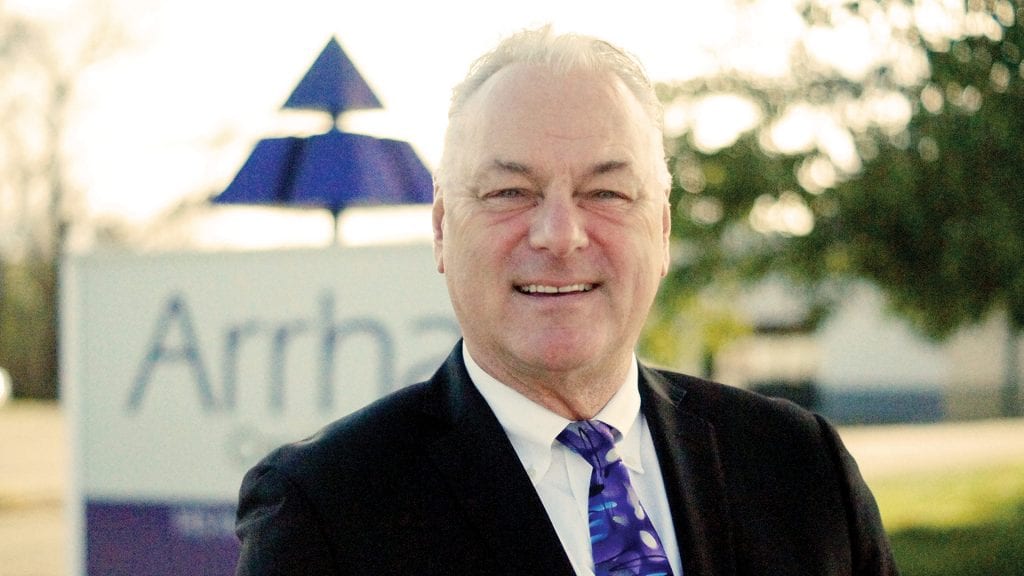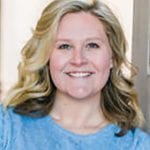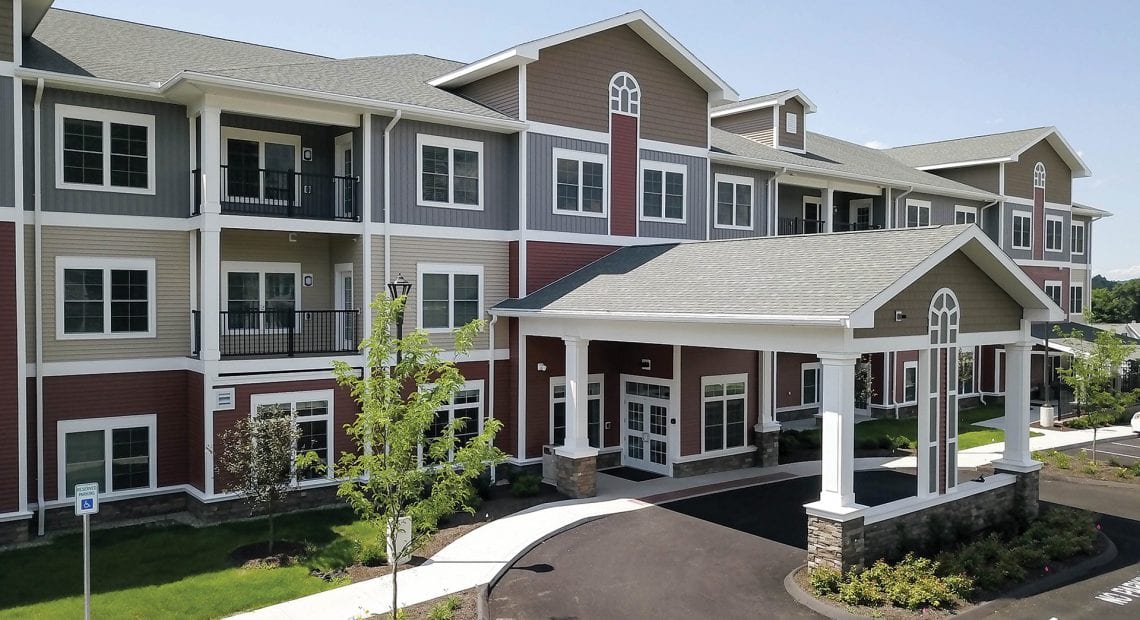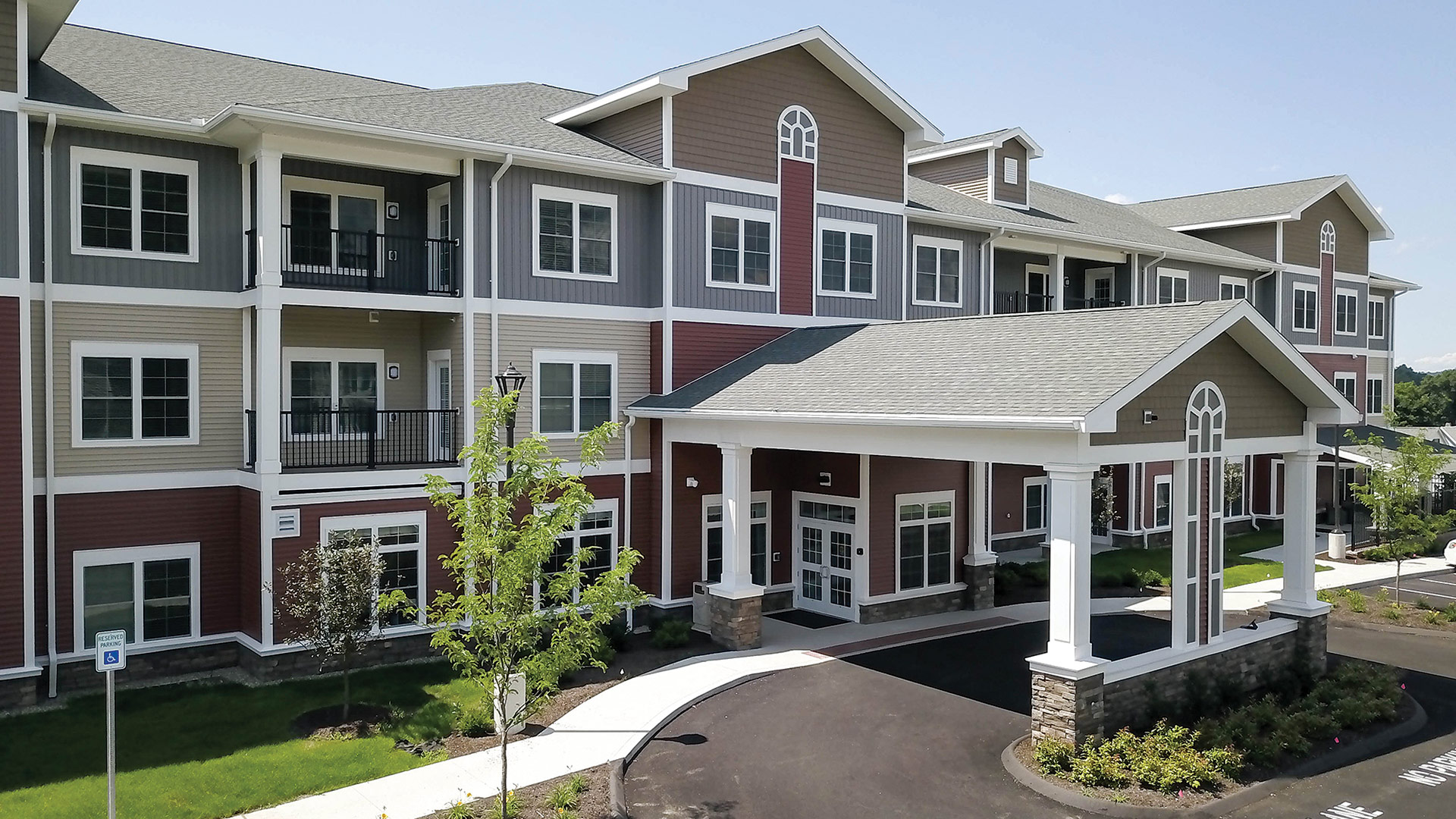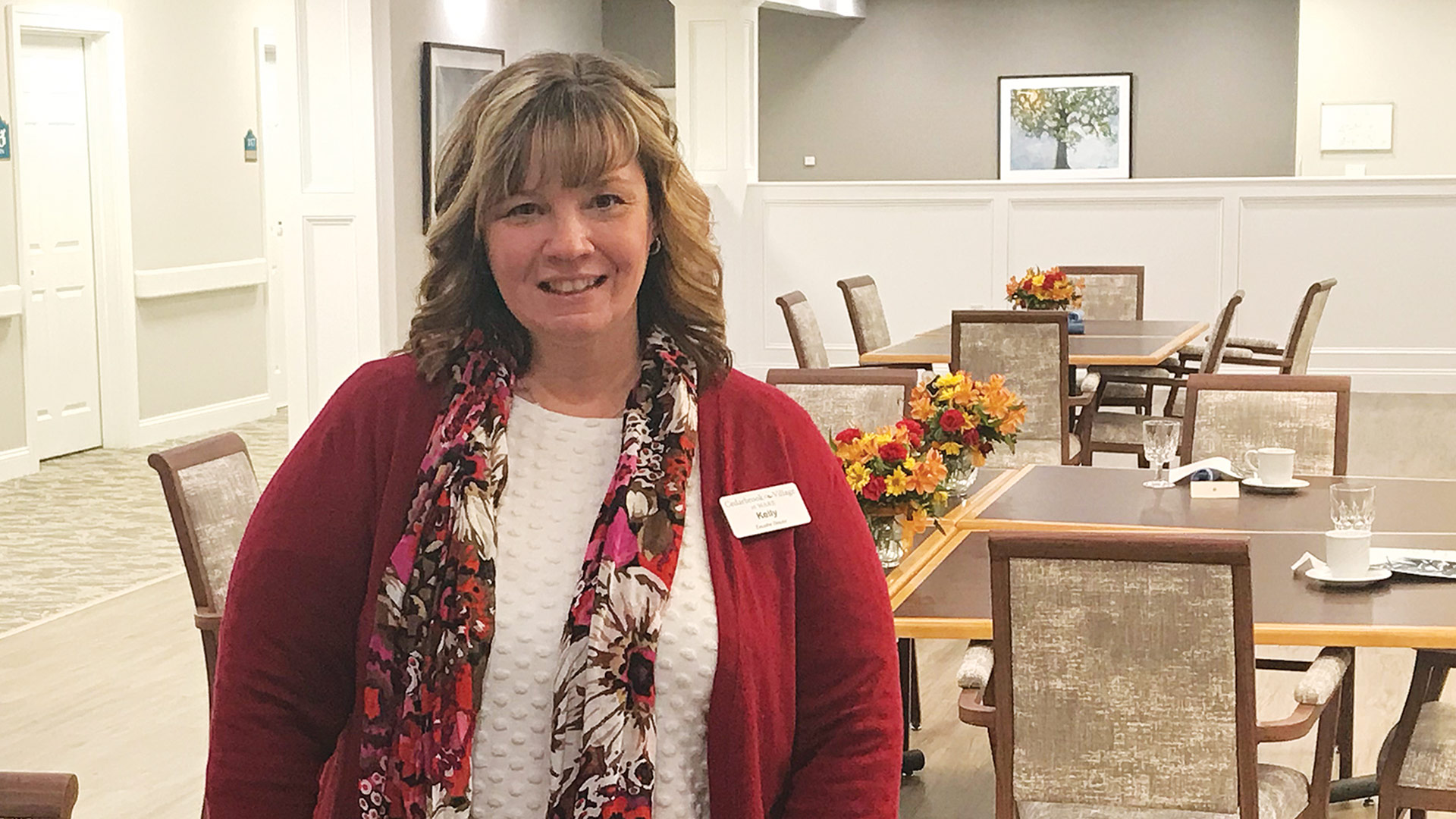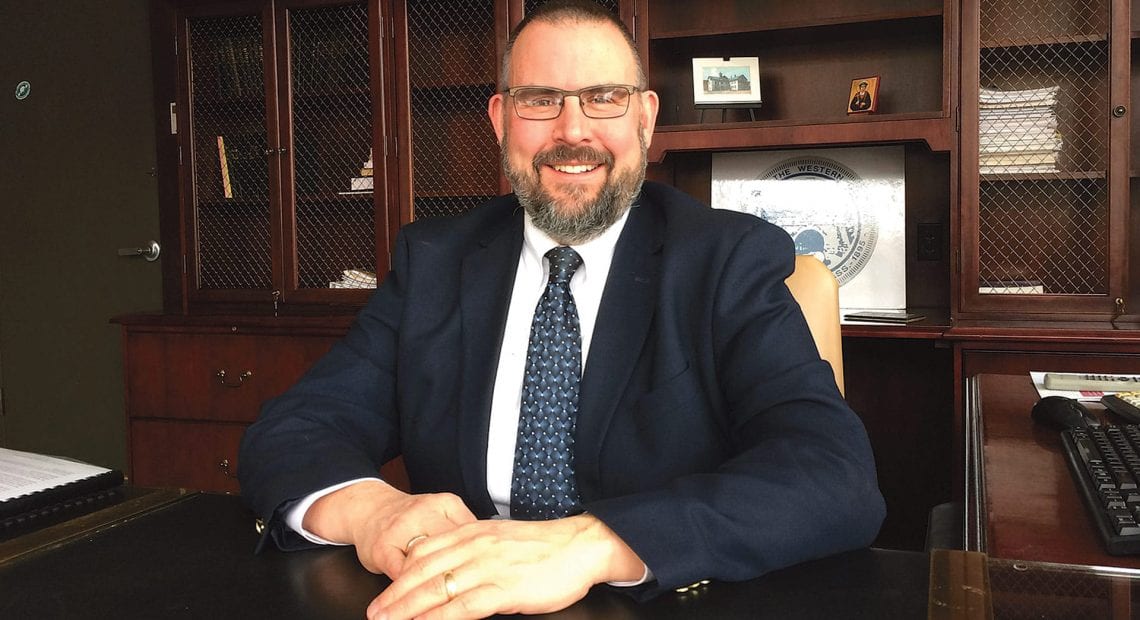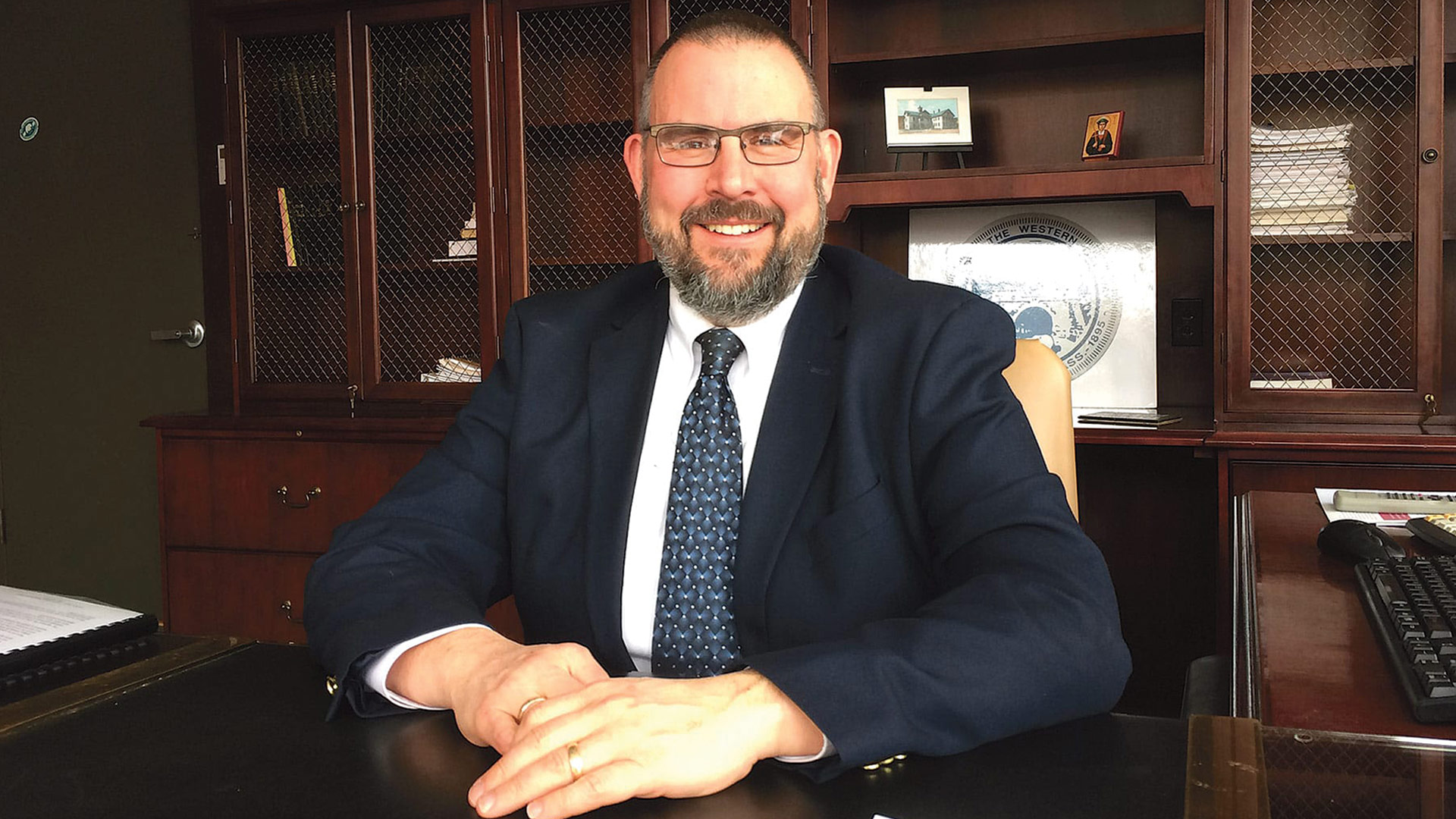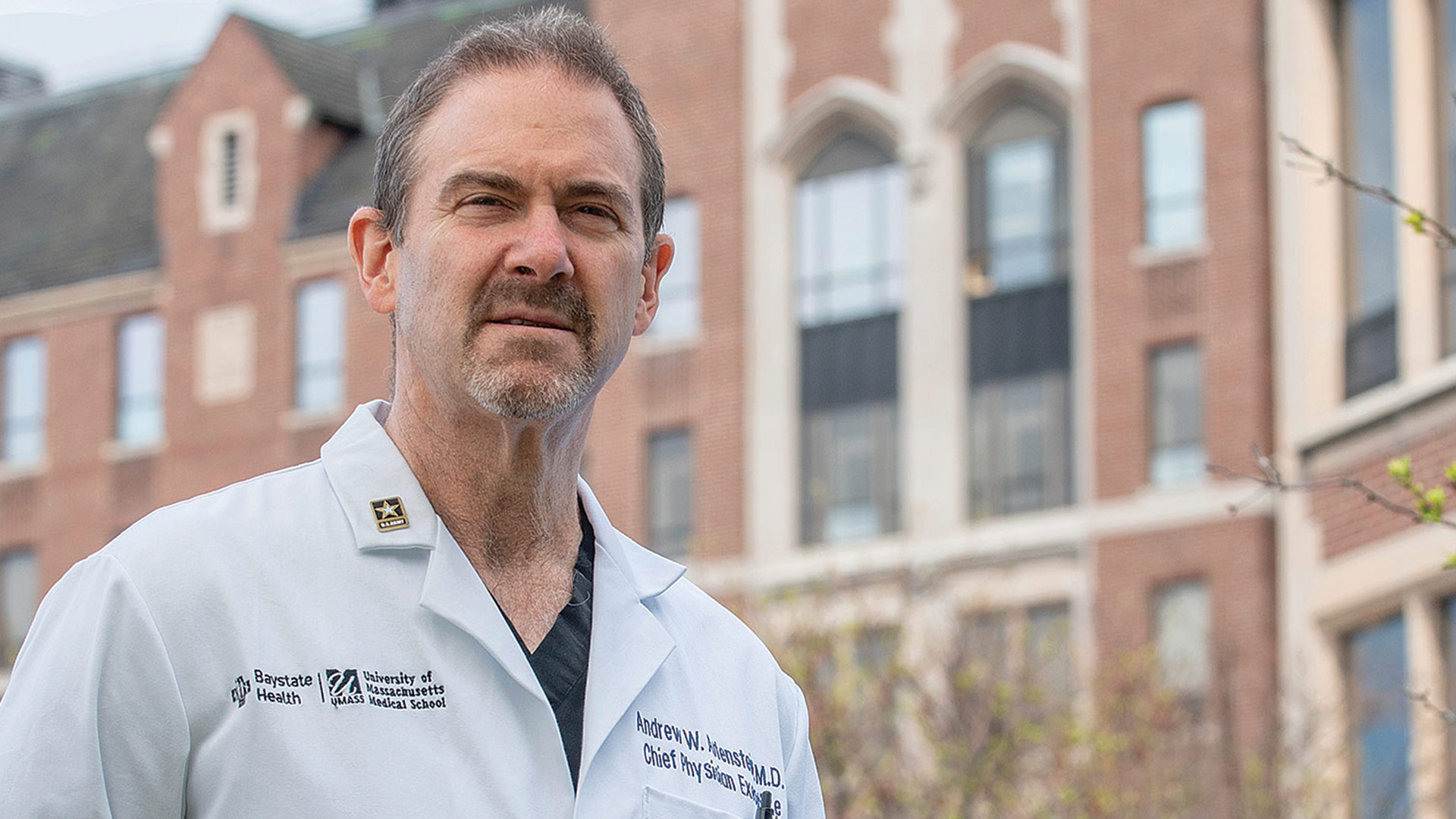Driving Forces

Rob Pion was walking outside at his family’s Buick/GMC dealership on Memorial Avenue in Chicopee, and used the view to put things in perspective for this industry as a trying, but not altogether terrible, year comes to an end.
“That’s basically the new-car inventory,” he said, pointing to a long single line of cars along the front of the property, noting that he was exaggerating, but only slightly.
Indeed, inventory remains an issue for almost all dealers in this region as manufacturers struggle to catch up after weeks, if not months, of shutdown at the factories. And matters are worse for GM dealers, said Pion, the third-generation principal of this venture, because of the lengthy strike at that corporation in 2019.
But aside from supplies of new cars — and things are getting slightly better on that front as well, as we’ll hear — the picture is brightening somewhat for auto dealers, and a sense of normal is returning, at least in some respects.
Or a new normal, if you will.
Indeed, Pion said the pandemic has effectively served to speed up the pace of change within the auto industry when it comes to doing things remotely and moving away from those traditional visits to the dealership to look at models, kick the tires, and even drop off the car for service.
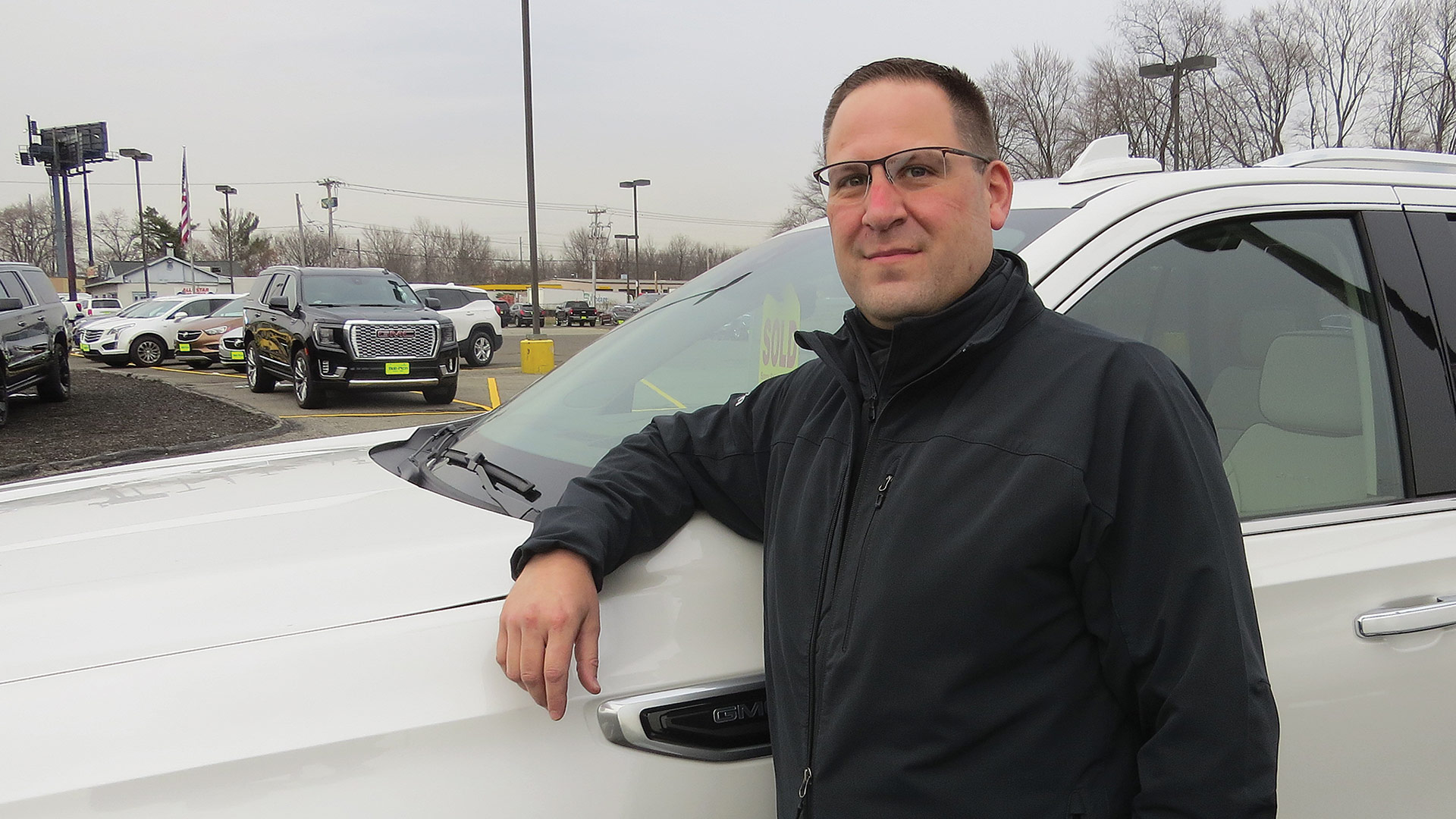
Rob Pion says inventory remains an issue at his dealership, and it will likely remain that way into the new year.
“There are experts out there saying that we moved forward 10 years in three months when it comes to internet purchasing, out-of-state deliveries, and people doing 98% of the deal over the phone or the internet,” he told BusinessWest. “And that sounds about right.”
Carla Cosenzi, president of TommyCar Auto Group, which operates four dealerships (Volkswagen, Nissan, Hyundai, and Volvo), agreed. She said the pandemic has certainly made online buying, as well as vehicle pickup and dropoff for needed service, more popular, and these trends will have staying power, especially as the number of COVID-19 cases rises again.
And while it was a somewhat tumultuous year, especially when it came to inventories of both new and used cars (and the prices of the latter), it wasn’t really a bad year for many dealerships — and certainly not as bad as things as things looked in March and April, when some dealerships actually closed and all others were seeing business come to something approaching a standstill.
“We’re actually on track for what our plan was 2020, even with what happened in March, April, and May,” said Peter Wirth, co-owner with his wife, Michelle, of Mercedes-Benz of Springfield, quickly noting a few caveats to that assessment. “Some things moved around a little — more used cars and fewer used cars based on supplies — but overall, as I said, we’re on track for where we wanted to be as a dealership.”
Cosenzi concurred. “Given the circumstances and what happened, we feel really good about how we finished in 2020,” she said. “When you look back to how everyone was feeling in March, we feel really appreciative of how we finished the year.”
‘Normal’ also applies, to some extent, to end-of-year, holiday-season sales, said those we spoke with, adding quickly that smaller inventories will certainly limit how many cars, trucks, and SUVs will be sold, including to businesses looking for tax incentives — although demand is certainly there.
But those end-of-year sales, such as Mercedes’ annual Winter Event, are happening, and they are bringing customers to the ‘dealership,’ literally or figuratively.
“It’s like a cherished piece of normalcy,” said Wirth. “People see that the Winter Event is happening, that the deals are out there. I feel like both our customers and our team are enjoying the fact that there’s a normal, busy holiday-selling season — so far, at least.”
He made that statement toward the middle of December, and that tone reflects a degree of uncertainty that still prevails in this industry and most all others as well.

Peter and Michelle Wirth say their Mercedes-Benz dealership managed to hit most of the set goals for 2020 despite the pandemic.
Indeed, while it’s easy to reflect on 2020, projecting what will happen in 2021 is much more difficult, said those we spoke with. Generally, there is optimism — or guarded optimism, which is the popular phrase at this time of year, and this time in history especially — but still some concern.
Overall, those we spoke with said trends and sentiments that took hold in 2020 — from less reliance on public transportation and services like Uber and Lyft (fueled by pandemic fears) to people gaining more comfort from (while also putting more resources into) their vehicles — should continue in 2021, and that bodes well for the year ahead.
But, as this year clearly showed, things can change — and in the time it takes for one of these new models to go from 0 to 60.
Changing Gears
Looking back on 2020, the dealers we spoke with said it was a trying year in many respects, and, overall, a time of adjustment — for both those selling cars and buying them — because of the pandemic.
Many of those adjustments involved the purchase or leasing process, with much of it, as noted, moving online. But the pandemic also forced most car manufacturers to shut down for weeks or months, eventually leading to those half-full (if that) lots at the dealership that became one of the enduring, and very visible, symbols of the pandemic.
Thus, instead of going to the lot and picking out what they wanted, as they had become accustomed to doing for years, many more customers had to factory-order their vehicle and wait, usually several weeks, for it to arrive. This meant extending leases in some cases, said Wirth, adding that the factory-ordering process took longer, in general. Overall, he noted, customers and his dealership adjusted, and there wasn’t a significant loss of business.
“Given the circumstances and what happened, we feel really good about how we finished in 2020. When you look back to how everyone was feeling in March, we feel really appreciative of how we finished the year.”
That’s because demand was consistently high, for a number of reasons, starting with some pandemic-fueled reliance on the family cars — yes, even as people were driving less, and considerably less in some cases — and a greater desire to take care of that car or trade up, something made more feasible and attractive by everything from incentives from the manufacturers to stimulus checks from the federal government, to the fact that people weren’t spending money on vacations or many other things.
Indeed, Michelle Wirth said 2020 was a year of greater appreciation for the car, and a time when many chose to focus on, and put money in, their homes, their cars, or both.
“There was a point in time during all this when your vehicle was probably the only recommended mode of transportation available to you,” she explained. “And if you chose, for whatever reason, not to have a car for a long time, suddenly, you felt you needed one.
“And if you had one, and it wasn’t as safe or new or nice as you might like, you did something about that,” she went on. “It was the same with home improvement — people were looking around and saying, ‘I didn’t spend much time here before. Now I do; I need to do something.’ The same with their car.”
Cosenzi agreed. “We saw many people reallocating their household budget,” she said. “We saw the majority of the people who shop our brands put their money in their houses and their vehicles, and also feel more like they had to rely on their vehicles, now more than ever.”
Elaborating, she said — and others did as well — that this sentiment applies to both service (taking better care of the car currently in the driveway) and buying or leasing something new or newer, more reliable, and in some cases lighter on the monthly budget.
Indeed, some manufacturers have been offering unprecedented incentives — Cosenzi noted that at least one brand is offering no interest for 84 months — and many of those still employed and with stimulus checks in hand soon eyed new or used cars as rock-solid investments.
“People were saying, ‘I can upgrade my car and get a lower interest rate; I can have a newer car that’s under warranty; I can pay less in interest in the long run and maybe lower my payment,’” she explained. “There are a lot of people who weren’t working or nervous about not working, that were taking advantage of the stimulus and really took that to make decisions about how to allocate their income.”
The problem is that supplies haven’t been able to keep up with demand — for most of this year and on most lots, anyway.
Keep On Truckin’
Which brings us all the way to back to Rob Pion pointing at that single line of new cars at his dealership. He said inventories have been consistently low and are due to remain that way. And when vehicles do arrive on the lot, they’re either already spoken for or not on the lot for long, especially when it comes to trucks, the pride of the GM line.
“We’re preselling vehicles at an unprecedented rate — the vehicles are sold before they hit my lot,” he explained. “Typically, people just want to come in and see them: ‘give me a call when it gets here.’ Now, they’re ‘here’s my deposit, call me when I can pick it up.’
“I don’t have any pickup truck inventory,” he went on. “So any businesses looking to make those year-end purchases for tax writeoffs … that’s just not happening this year because there’s little or no availability for them when it comes to that type of vehicle.”
Still, overall, dealers are reporting that the parking lots are more full than they have been.
Peter Wirth said supplies have been steadily improving at Mercedes-Benz, and in the meantime, between the stock at the Chicopee location and a sister dealership in New York, most customers have been able to find what they’re looking for or factory-order it.
Cosenzi, meanwhile, said inventory levels have “balanced out” at her dealerships, and there are now adequate supplies for what she hopes will be a solid end-of-year run.
As for what has been a crazy year for the used-car market, where at times vehicles were difficult if not impossible to find and prices skyrocketed, some normalcy is returning to that realm as well.
“As quickly as it went up, the market is perhaps just as quickly coming back down,” said Pion, adding that, overall, it’s been ultra-challenging for dealers to not only get used cars but cope with the fluctuations in that market — from when the bottom dropped out back in the spring to when prices soared during the summer, to the state of relative uncertainty that exists now.
Peter Wirth agreed that it’s been a bumpy road when it comes to used cars — for a time, he had one employee who did nothing else but try to find vehicles to buy — but said some stability has returned.
“We have roughly 75 used cars in stock,” he noted. “It took us a while to catch up on inventory, just because sales were really good on pre-owned cars all year, so while we kept buying more cars, we sold them right away. It’s taken us until now to find more cars so we replenish supplies. And it’s not just about buying cars — you want be selective and find the right cars.”
Looking ahead … well, while people can do that, it’s difficult given how many unknowns dominate the conversation, regarding everything from pandemic spikes to vaccines to new- and used-car inventories.
“The vaccine is a positive, people not wanting to depend on public transportation or ride-sharing is a positive, and the incentives and low interest rates are positives,” Cosenzi said. “But we can’t be in denial that there is still a virus out there and people are being more cautious than ever before.”
But while question marks remain for the year ahead, the consensus is that 2020 was, overall, not as bad as it could have been, and that a sense of normal — if perhaps a new normal — has returned.
George O’Brien can be reached at [email protected]



